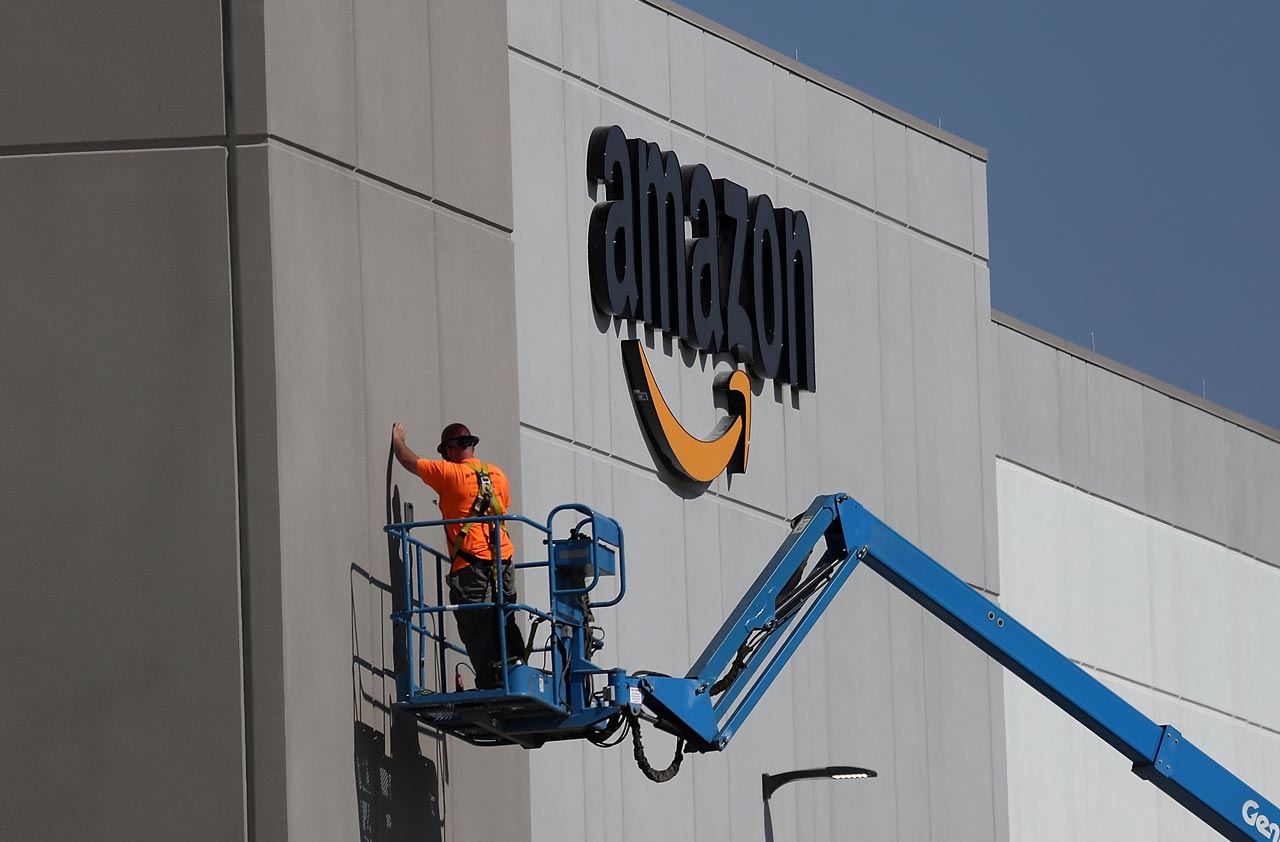What Should Doctors and Drugmakers Do to Stop Painkiller Addiction?
Physicians and dentists need mandatory pain-management training, starting in medical and dental schools and continuing thereafter.


Profit and prosper with the best of Kiplinger's advice on investing, taxes, retirement, personal finance and much more. Delivered daily. Enter your email in the box and click Sign Me Up.
You are now subscribed
Your newsletter sign-up was successful
Want to add more newsletters?

Delivered daily
Kiplinger Today
Profit and prosper with the best of Kiplinger's advice on investing, taxes, retirement, personal finance and much more delivered daily. Smart money moves start here.

Sent five days a week
Kiplinger A Step Ahead
Get practical help to make better financial decisions in your everyday life, from spending to savings on top deals.

Delivered daily
Kiplinger Closing Bell
Get today's biggest financial and investing headlines delivered to your inbox every day the U.S. stock market is open.

Sent twice a week
Kiplinger Adviser Intel
Financial pros across the country share best practices and fresh tactics to preserve and grow your wealth.

Delivered weekly
Kiplinger Tax Tips
Trim your federal and state tax bills with practical tax-planning and tax-cutting strategies.

Sent twice a week
Kiplinger Retirement Tips
Your twice-a-week guide to planning and enjoying a financially secure and richly rewarding retirement

Sent bimonthly.
Kiplinger Adviser Angle
Insights for advisers, wealth managers and other financial professionals.

Sent twice a week
Kiplinger Investing Weekly
Your twice-a-week roundup of promising stocks, funds, companies and industries you should consider, ones you should avoid, and why.

Sent weekly for six weeks
Kiplinger Invest for Retirement
Your step-by-step six-part series on how to invest for retirement, from devising a successful strategy to exactly which investments to choose.
Q. America is in the grip of a terrible epidemic: addiction to pain-relieving prescription medicines. What responsibility do you think the manufacturers, distributors and prescribers of these drugs have in this crisis?
A. I think they bear plenty of responsibility, which some of them—and their professional associations—have been reluctant to accept.
Ultimately, individuals are responsible for their own health and what they put into their bodies. But when pain is strong and/or chronic, there is a natural tendency for patients to ask for whatever will ease it, and with this comes the risk of addiction to opioids.
From just $107.88 $24.99 for Kiplinger Personal Finance
Become a smarter, better informed investor. Subscribe from just $107.88 $24.99, plus get up to 4 Special Issues

Sign up for Kiplinger’s Free Newsletters
Profit and prosper with the best of expert advice on investing, taxes, retirement, personal finance and more - straight to your e-mail.
Profit and prosper with the best of expert advice - straight to your e-mail.
That’s why physicians and dentists need mandatory pain-management training, starting in medical and dental schools and continuing thereafter. They should first prescribe the mildest, nonaddictive, over-the-counter pain remedies. If they step their patients up to more-powerful prescription drugs, they should be required to limit the initial supply, counsel their patients and monitor them carefully for early signs of addiction.
States must maintain well-funded, real-time prescription-drug monitoring programs so that prescribers and pharmacists can spot patients who get prescriptions from multiple physicians, dentists and pharmacies, as well as see patterns of over-prescribing of painkillers by medical professionals—either by negligence or for illegal resale purposes (“pill mills”).
Manufacturers of prescription painkillers have to recognize that some portion of the soaring sales and profits they have enjoyed are coming from both overuse by legitimate patients and illegal black markets. Some manufacturers are belatedly endorsing mandatory physician training in pain management and even physician licensing by the federal Drug Enforcement Administration for prescribing opioids.
Sadly, tougher training and prescribing standards for American health care professionals are not enough. The addiction epidemic is now being fed by supply chains that go far beyond U.S. drugmakers and medical professionals. An internet mail-order market is flourishing, and foreign supplies of generic opioids are flooding into our country. China has agreed to ban the export of more than 100 drugs, but new sources are constantly arising. This epidemic must be fought on many fronts.
Profit and prosper with the best of Kiplinger's advice on investing, taxes, retirement, personal finance and much more. Delivered daily. Enter your email in the box and click Sign Me Up.

Knight came to Kiplinger in 1983, after 13 years in daily newspaper journalism, the last six as Washington bureau chief of the Ottaway Newspapers division of Dow Jones. A frequent speaker before business audiences, he has appeared on NPR, CNN, Fox and CNBC, among other networks. Knight contributes to the weekly Kiplinger Letter.
-
 How Much It Costs to Host a Super Bowl Party in 2026
How Much It Costs to Host a Super Bowl Party in 2026Hosting a Super Bowl party in 2026 could cost you. Here's a breakdown of food, drink and entertainment costs — plus ways to save.
-
 3 Reasons to Use a 5-Year CD As You Approach Retirement
3 Reasons to Use a 5-Year CD As You Approach RetirementA five-year CD can help you reach other milestones as you approach retirement.
-
 Your Adult Kids Are Doing Fine. Is It Time To Spend Some of Their Inheritance?
Your Adult Kids Are Doing Fine. Is It Time To Spend Some of Their Inheritance?If your kids are successful, do they need an inheritance? Ask yourself these four questions before passing down another dollar.
-
 Should All Student Debt Be Forgiven?
Should All Student Debt Be Forgiven?student loans My favorite reform would be making the repayment of all student loans proportional to the borrower’s future earnings.
-
 Should Lenders Mail Unsolicited Checks to Potential Borrowers?
Should Lenders Mail Unsolicited Checks to Potential Borrowers?credit & debt When it comes to preying on weak credit risks, it looks like Wall Street is at it again.
-
 Do Adult Children Have an Obligation to Support Needy Parents?
Do Adult Children Have an Obligation to Support Needy Parents?savings Even if some siblings can afford to help more than others, no one should shirk the obligation to assist in some way -- financial or otherwise.
-
 Should Nondisclosure Agreements Be Banned in Sexual Harassment Settlements?
Should Nondisclosure Agreements Be Banned in Sexual Harassment Settlements?Business Costs & Regulation Knight Kiplinger offers his advice on how companies can improve their handling of harassment problems.
-
 How Can the Approval Process for New Drugs Be Speeded Up?
How Can the Approval Process for New Drugs Be Speeded Up?investing There are many reform proposals, including some from free-market think tanks.
-
 Are Incentives to Lure New Businesses Fair to Current Employers?
Are Incentives to Lure New Businesses Fair to Current Employers?Business Costs & Regulation Job growth and spending at an existing firm should be worth just as much in incentives as new jobs and capital investment brought in from outside.
-
 Should Ethics Determine Who You Do Business With?
Should Ethics Determine Who You Do Business With?Smart Buying Consumers seeking to do business only with ethical companies should ask these questions.
-
 Should Colleges Use Collection Agencies for Overdue Student Bills?
Should Colleges Use Collection Agencies for Overdue Student Bills?college Colleges have many potent options for getting students to square their accounts.